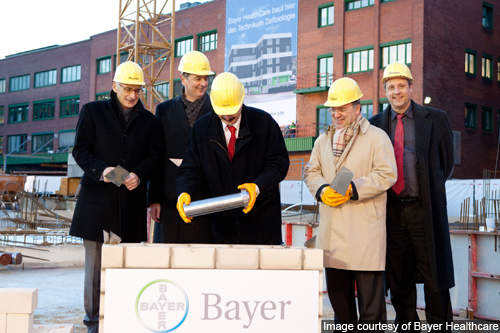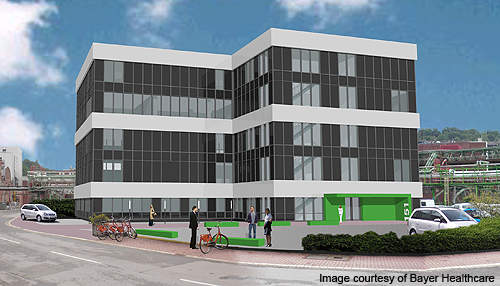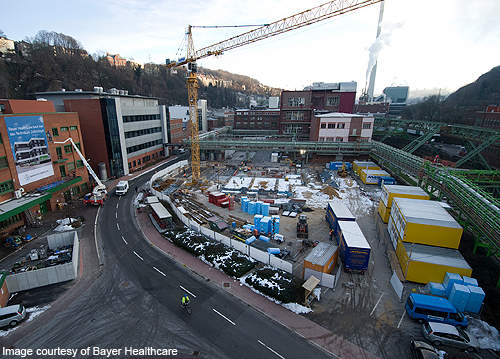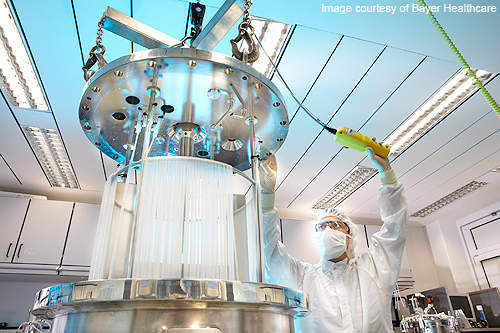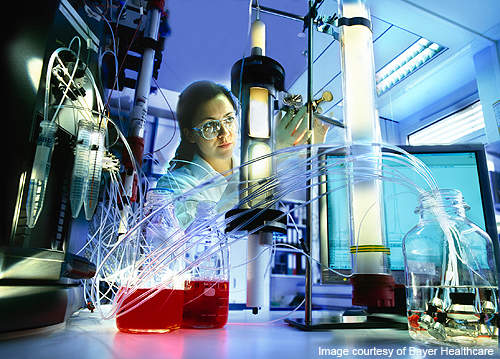Bayer Healthcare broke ground for a new biopharmaceutical manufacturing facility in Wuppertal, Germany on 13 December 2010. Located at Bayer’s Wuppertal Pharmaceutical and Chemical Park, the new facility will be dedicated towards biotechnological production of pharmaceuticals for use in clinical trials. It is scheduled to be operational by late 2012.
The project requires an estimated investment of €35m and will operate with 20 highly skilled employees.
The Wuppertal site provides the ideal framework conditions for the new facility. Established over 130 years ago, the site is the company’s oldest location.
Bayer facility
The multi purpose facility will occupy 1,000m² across five storeys. Two storeys will be dedicated for production. The remaining three storeys will be used for technology suites, administrative offices and social rooms. The building will measure 20m in height.
There will be approximately 1,370m² of clean rooms. Bayer has faced multiple cleaning validation problems at its biologics manufacturing division in the Clayton, North Carolina facility. With this experience, Bayer is installing exclusive airlock systems to provide access to the clean rooms at the new Wuppertal facility. The air lock systems will prohibit airborne germs and particles from exceeding specific limits.
Equipment required for all phases of the biotechnological procedure will be installed.
Production
The facility will be used for the development of small molecular weight compounds as well as biologically active ingredients. The focus will be on producing antibodies, coagulation factors and other therapeutic proteins. It will enable the company to rapidly develop new drugs for the treatment of serious illnesses including cancer.
The facility will also develop large quantities of material for the later stages of clinical development for a number of potential active ingredients.
Process technology
The facility will use mammalian cell culture technology based on serum-free cultivation. Recombinant proteins derived from microbial cells will be produced as batch or fed-batch cultures including high cell density cultures.
To produce the desired active agent, the requisite human genes will be first inserted into the appropriate host cells. The genetically modified cells will be stored in cell banks. The cells will be transferred from the deep frozen cell banks and cultivated in suspension culture in order to produce the biopharmaceuticals. As the cell culture grows, it will be transferred to fermenters.
During fermentation, the cultured cells will secrete the product into the surrounding medium. During this phase, fresh medium will continuously replace the removed culture fluid containing the released protein. In order to maintain high cell density, the cells will be separated from the harvest fluid in an external cell retention device and recycled back to the fermenters.
Following fermentation, the cells will be separated from the culture medium through centrifugation or filtration. A series of purification steps will allow the molecules of the active agents to be isolated from the culture medium.
Each batch will be tested for purity and other vital properties to ensure constant quality.
Bayer’s Wuppertal site
The Wuppertal site operates two independent fully equipped state-of-the art microbial and mammalian biotech facilities. The site offers a range of services from R&D development to the production of chemical and biological API.
The cGMP mammalian cell culture facility is integrated into a lab building and can perform batch and fed-batch fermentation with up to 200l of fermenters.
The microbiology facility operates with a flexible range of fermenters starting from 10l to 3,000l and can undertake both batch and fed batch fermentation.
The site has 16 chemical laboratories including 14 for process R&D and automation and two for scale up.
Two GMP laboratories are equipped to handle active compounds and perform GMP batch chromatography. There are seven analytical laboratories.

